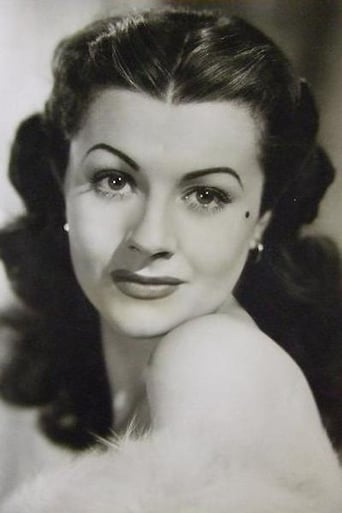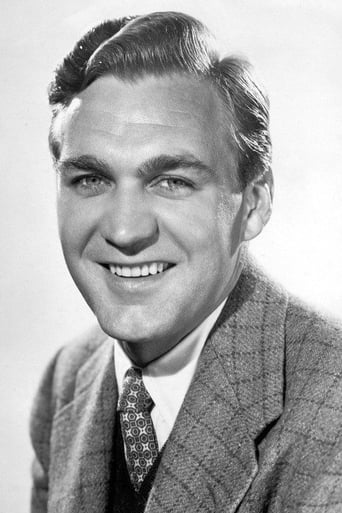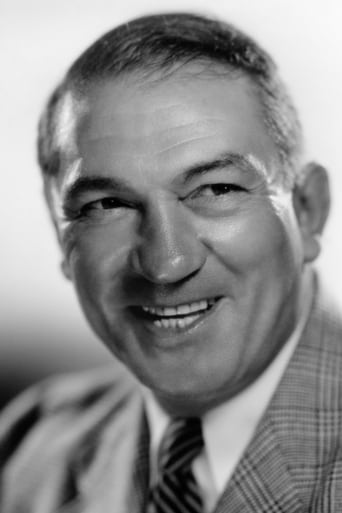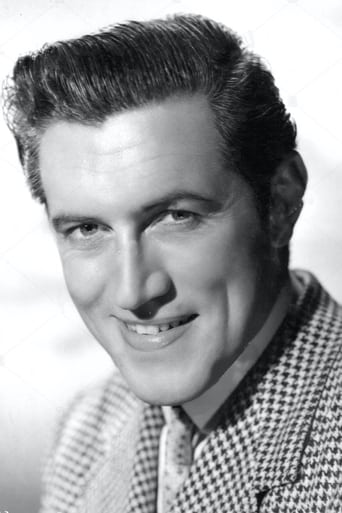Vashirdfel
Simply A Masterpiece
Teringer
An Exercise In Nonsense
Mandeep Tyson
The acting in this movie is really good.
Candida
It is neither dumb nor smart enough to be fun, and spends way too much time with its boring human characters.
bkoganbing
To understand why Trouble In the Glen was brought to the screen at all is to remember this is also the studio that produced The Quiet Man which was taken from another Maurice Walsh story. John Ford wanted to do the film for years and went with Republic Pictures because he didn't have to pay for John Wayne's services. Still the penny pinching founder and head of Republic, Herbert J. Yates drove Ford crazy with his budget cutting here and there. It was a miracle the film was made at all and on location. So when The Quiet Man becomes a big artistic and commercial triumph, now Yates must be thinking himself a genius so why not assemble the same team, but without that troublesome John Ford. Go to Herbert Wilcox to produce and direct and we can even get Orson Welles who'll do just about anything to finance his projects. Since we'd now have to pay John Wayne a big salary since he's no longer under contract to Columbia, we'll get a second line actor like Forrest Tucker for his role.I can see all the wheels turning in Mr. Yates's mind as he probably plunged enthusiastically into Trouble in the Glen which can be described as a Scottish version of The Quiet Man. The problem is that it really did need the touch of John Ford to make it a great film.As it is it's not a bad film, Orson Welles and Victor McLaglen are at their scene stealing best. Forrest Tucker and Margaret Lockwood who is Welles's daughter are an attractive pair of romantic leads. The film is about an heir to a Scottish estate returning from South America and taking over the family place, but then getting into a quarrel with the locals and cutting them off from the use of a road running through his property. Forrest Tucker is like John Wayne, the stranger from America who has ties to the place also that we don't really learn about until almost the end of the film. Trouble in the Glen has the same kind of beautiful location cinematography that The Quiet Man has. But it really needed someone like John Ford at the helm.
MovieAddict2016
U.S. Air Corps Major Lance Lansing (Forrest Tucker) returns to Scotland after WWII to a small glen, where he makes his home due to the laird, Sanin Mengues (Orson Welles), a wealthy South American who's returned to his ancestors' land with his daughter, Marilla (Margaret Lockwood).Everyone in the glen tries to persuade Mengues to bring piece to their homes, only to have Lansing and Parlan (Victor McLaglen), the Mengues foreman, get in a fight together.This was listed in my UK TV schedule as a good film and they have it a three-star rating. They made it sound like it was a film about Orson Welles visiting Scotland after the war, which is far from the actual plot.Welles really chews up the scenery - in a bad way. He's funny but also quite annoying and seems out of place. Lockwood is given little to do but be pretty. Tucker is so-so.I was disappointed because I was expecting something entertaining and "classy," whereas instead I got a boring, dull and sappy "nice" movie without any real positive traits.It's not terrible, it's just not very good.
bob the moo
It all started with a fish. Wealthy South American Sanin Mengues has returned to the Scottish home of his forefathers and is Laird of the Glen. However his poor attempts at fishing frustrates his foreman Parlan to the point where he insults his boss and is promptly fired. This sparks a great unrest across the Glen and a standoff between the landowner and his employees ensues. Into the mix of this comes American Major Jim Lansing, returning after the war to find that he is now going to have to broker peace rather than make war.Following the success of similar films trading on Celtic/Gaelic "charm" and the like, this film was produced with quite an impressive (on paper) cast hoping to cash in. The problem is with the plot – it isn't focused on Sanin Mengues so much as it is on Lansing, his little Scottish girl and his romances, and my gosh is it dull and sentimental. The stuff involving Sanin is at least boisterous and quite fun but this is mostly placed on the sidelines and it means that the film is mostly pretty boring. It wallows too much in unconvincing sentiment and relationships that don't ring true, producing a main plot thread that almost totally fails to engage in any way shape or form.The noisy plot thread involving Sanin is reasonably fun mainly because of a hammy piece of p*ss-taking from Orson Welles, who just seems to be enjoying himself in a different film from everyone else. He is comparatively terrible of course but at least he is funny. Lockwood is totally wasted in the film with nothing to do of any merit and, although she does try, there is a reason why few viewers would recall this film in her back catalogue. Tucker is wooden and dull, a fact not helped by how hilariously OTT Welles is. He may have third billing but he is the lead character and the film suffers as a result. McLagen is quite good and works well with Welles but the rest of the support cast are fairly average Scottish stereotypes.Overall this is a poor film that is built on a dull plot with big dollops of sentimentality. There are moments that are lively and funny but they are few and far between and certainly do not do enough to keep things interesting. If you're desperate for a dated piece of Celtic "charm" then by all means give this a go but I doubt many viewers will get anything from it.
Oct
Republic Pictures's biggest hit was "The Quiet Man", John Ford's Irish blarneyfest. Two years later its writer, Frank S Nugent, tried to work that magic on the Scottish Highlands. But "Trouble in the Glen" only had the prolific hack Herbert Wilcox at the helm, and his winning streak with Anna Neagle had gone phfft.Lensed in sludgy brown Trucolor, "Trouble in the Glen" plays like an Ealing comedy sans asperity, fading quickly into the Celtic twilight from which Brigadoon rises once a century. Orson Welles is a returning laird whose years in South America presumably explain his swarthy skin tones if not his blue-grey bouffant wig. Welles was already a podgy Hollywood outcast wandering the European co-production badlands, scrounging, spending and sometimes shooting: he was between "Othello" and "Mr Arkadin" at this juncture. He relies on his magnificent organ voice and eyes that gleam in the gloom (as in "Jane Eyre") to sustain his turn as a tyrant, at odds both with his glenfolk tenantry and with a roving gang of tinkers. The head "tink" is the terminally fuddled Victor McLaglen, another Ford veteran.Stuffing casts with faded US talent to win a Stateside circuit release was standard operating procedure for the struggling Britflick biz of the early 1950s. Besides Citizen Kane and Sgt Quincannon, "Trouble in the Glen" toplines the colourless Forrest Tucker. Like John Wayne in "The Quiet Man", Nugent makes him a Yank on a sentimental journey. Like Wayne, he banters or scraps with the locals and tames a spirited filly: Maggie Lockwood, the laird's daughter, in reality four years older than Orson! Her cut-glass accent matches neither Welles's nor the area's Scotch English. There is also a winsome, bedridden little girl for Tucker to set on her feet.The subplot concerns unjust suspicions that the tinkers stole a deer. Has there ever been a movie in which gypsies or traveling people actually did the crimes of which they are accused?




